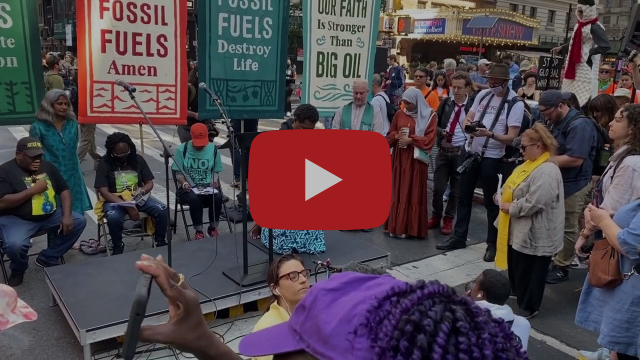The march began with an interfaith invocation, bringing together people from various religious backgrounds. Frances Namoumou, from the Pacific Conference of Churches, delivered a Christian prayer focusing on water as a life-sustaining resource, emphasizing the need to safeguard it from exploitation and extraction. Part of the WCC delegation in the march, Rev. Henrik Grape, WCC senior advisor on Care for Creation, Sustainability, and Climate Justice, emphasized, "The fossil fuel industry has shown an unwillingness to change, despite the evidence and scientific consensus. People of all faiths and Indigenous communities have marched together to demand the removal of fossil fuels from our society's systems. A swift and equitable phase-out is essential to protect our shared home." Organizers estimated that between 50,000 and 75,000 individuals participated in the Manhattan march, marking it as the largest climate protest in the US since the COVID-19 pandemic outbreak in 2020. Athena Peralta, WCC programme executive for Economic and Ecological Justice, stressed the WCC's faith-based duty to support those most affected by climate change. She stated, "Our faith compels us to call upon our leaders to transform our unsustainable and unjust economic practices. Today, we acted in accordance with our faith." In June 2023, the WCC central committee endorsed the Fossil Fuel Non-Proliferation Treaty, reaffirming its commitment to a fossil-free future. The "March to End Fossil Fuels" sent a clear message: the time to shift away from fossil fuels is now, and the global church community is at the forefront of this call for a rapid and equitable transition to protect our shared home. WCC work on Care for creation and climate justice | 



No comments:
Post a Comment